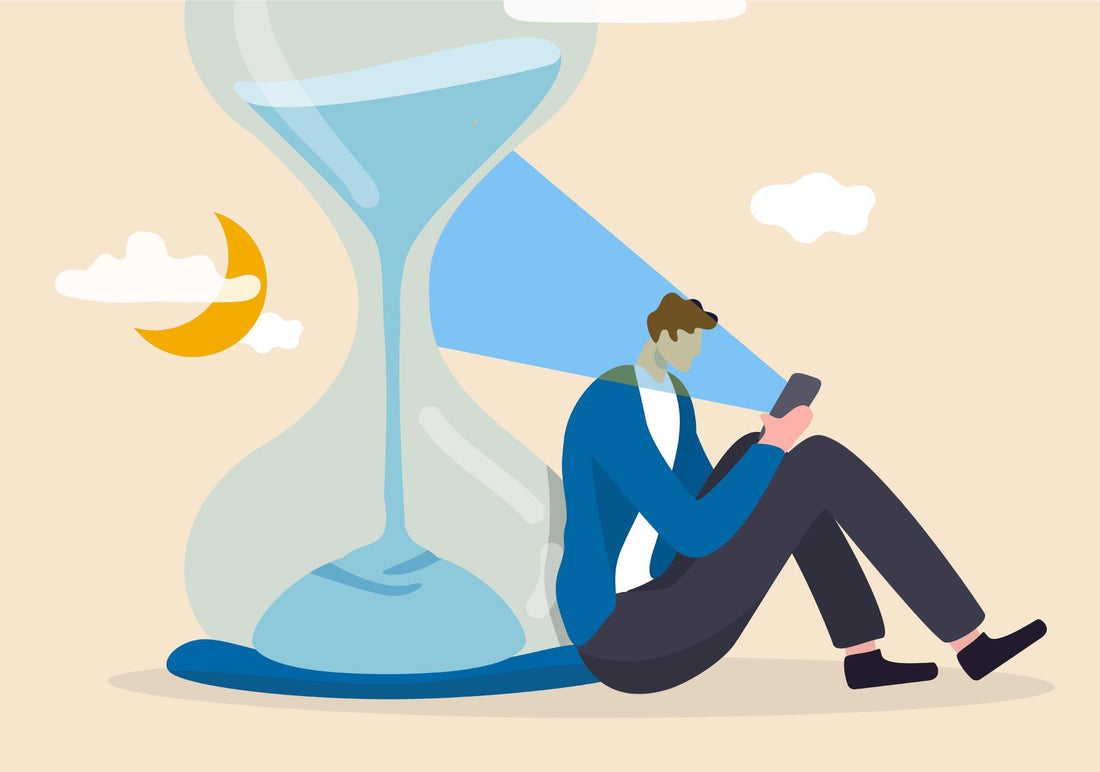(10-minute read)
How to protect your eyes from blue light. In our modern world, artificial blue light is everywhere. At work, in your living room, and even when out taking a walk after sunset under LED street lighting.
Continue reading this article and learn the best ways to reduce blue light and to keep your eyes protected.
Our urge to always stay connected and to be productive at work sets our eyes up for a daily challenge. To protect your vision from blue light damage, you need to have a plan of action.
It is essential to understand what works for long-term relief from potentially harmful blue light.
Here is a list of eight ways to reduce your blue light exposure at home and when working.
1. Reduce screen time
As easy as it sounds, the best way to reduce blue light is to reduce your total screen time.
However, this is out of the question for most of us that want to stay productive at work, where the majority of the daily computer screen time occurs.
Make sure to take advantage of opportunities for rest, and let the eyes take a break from screen time when having time off.
2. Blue light filter app
It is highly recommended to install f.lux on your computer.
This software reduces blue light, so your eyes can stay more relaxed during the day. It mimics the daily sunlight hours, giving the screen an orange hue at night.
See how to use the f.lux blue light filter app in this article.
Other options are “Night Light” on Windows, “Night Shift” on macOS/iOS, and “Night Mode” on Android.
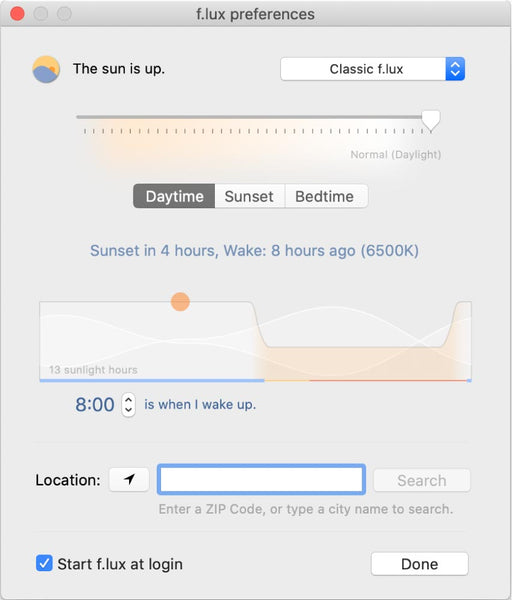
3. Computer glasses – Clear lenses
One of the easiest ways of getting blue light protection is to use computer glasses.
The glasses become your personal shielding against the harshest blue light rays.
It is important to get a pair from a reputable brand because the lenses have to be of good quality to filter out the recommended 25–30% of blue light.
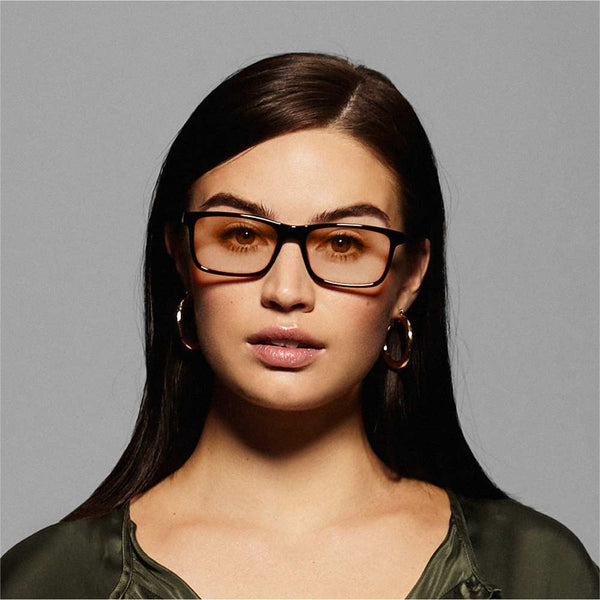
4. Blue light blocking glasses – Orange lenses
For blue light protection at night, it is recommended that you completely stop using your devices at least one hour before bedtime.
This is because blue light keeps you awake. Read about blue light and sleep in this article.
If you want to stay connected or keep working into the late hours, blue light glasses are a great tool. For this use case, the lenses should be orange for the best performance and clarity.
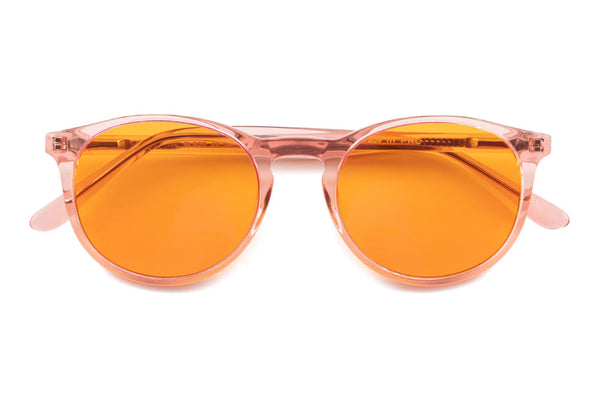
5. Screen filter
As an alternative to using glasses, there are special screen filters you can place on top of your smartphone or computer screen.
The downside with this kind of product is that they are fixed to the specific device and therefore cannot be disabled as easily as taking off your glasses or changing the setting on your filter app.
Depending on the quality of the film, they can also change the overall clarity of your screen.
6. Room lighting
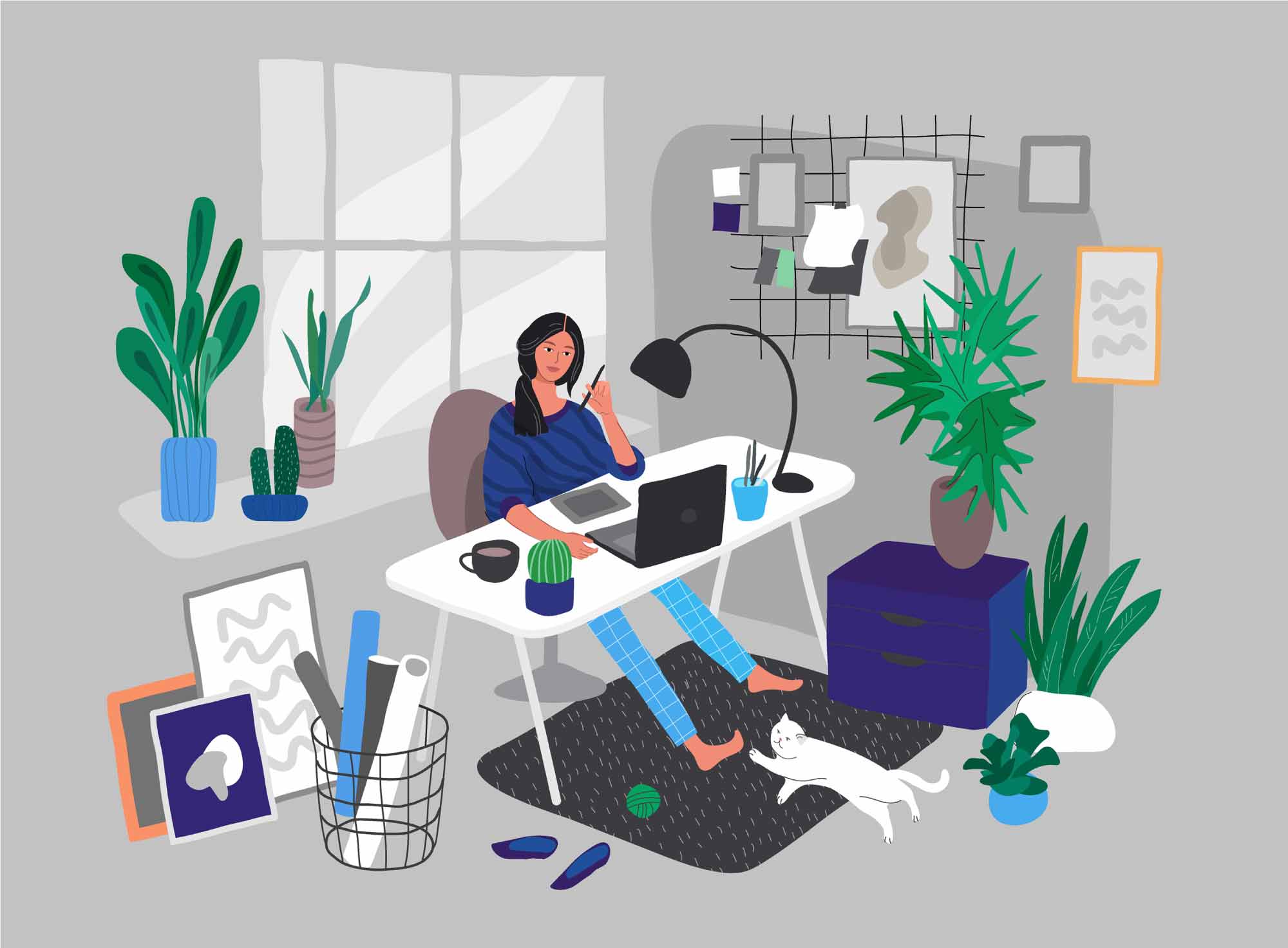
It is important that your light environment matches your screen brightness.
You should aim to have a consistent level of light around you when you use digital devices because low ambient light tricks your eyes into letting in more blue light.
7. Adjust screen settings
A higher brightness level means more blue light emitted from your computer or smartphone screen.
If your screen looks dull or too bright, reduce or increase the brightness to match the ambient light. This can help to reduce your exposure to blue light.
More and more computer screens come with a blue light filter mode built in. Make sure to activate this if it is available.
8. Eye nutrition
In terms of active protection from blue light, there are certain nutrients that can support your eyes’ natural defenses.
The three carotenoids lutein, astaxanthin, and zeaxanthin have shown promising results in studies for their protective properties against blue light-induced macular degeneration.
These can be found naturally in foods like spinach and other leafy greens. To ensure a sufficient intake, supplementation is a convenient option.
Summary
There are many good ways of protecting your eyes from an overload of potentially harmful blue light.
The best approach is to implement a long-term plan, rest from screen time when possible, and use simple tools like blue light filter apps or blue light glasses.
Share this article with the links below to help others to reduce their blue light exposure.
Happy Deep Sleep,
Oskar Eriksson, M.Sc.
The Sleep Engineer™

